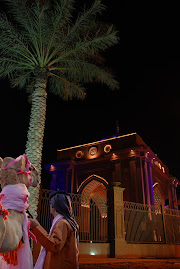
I am not married, and so don't have kids of my own yet (although I am acutely aware the order can, in theory, be switched). Ha, right. Moving on.
Despite the above facts, a frisky furry animal taught me a lesson or two in motherhood this past week.
We have an adorable cat, Juju, who is less than a year old. When she was only a kitten, Juju was this adorable little thing (still is), and like most newborns, needed constant attention, care and love. As she grew older,though, her personality developed into something "unique" for her species: she did not like to cuddle or be petted, was hyperactive, attacked our toes as we walked by and would crouch into attach mode at invisible things ("I see dead people", perhaps?) constantly. We presumed there was something wrong with her, and took her to a vet to learn more.
The outcome? -Well, that's her personality. "Not all cats want to cuddle and act cute," said the vet. Well then. We were definitley intrigued. While we didn't necessarily want her to be the typical house cat, we were still concerned for our toes, and for the poor cat who seems to be frightened of well, air.
We got over it eventually, and learnt to deal with Juju and her ADHD ways. But a few days ago, something strange happened. She wanted to cuddle. Whenever I was sitting on a nearby couch, she would slowly approach me and lay on my lap, and then proceed to look at me and purr.
Because of Juju's difficult personality, I became ambivalent to her in the past. But a motherly instinct quickly developed: I was concerned for her change in ways.
Something was definiteley wrong because she was not being herself. And while I secretly I enjoyed her "normal" cat behaviour, I knew it wasn't normal for Juju. We took her to the vet only to find out she had a fever, possibly from a virus and possibly from a strain in one of her limbs (she had a slight limp). Juju got an injection, which was supposed to help with her high temperature, and was due to get another one the next day.
After two days of treatment, Juju was slowly turning into her usual independent self again. She resumed her unexplainable habit of 'attacking' our toes , and shyed away from people who wanted to pet her.
And while I miss the warmth of her snow white coat of fur as she lay on my lap, the mother in me is extremely glad she is acting herself again.
(Picture: Juju, pre-sickness)










